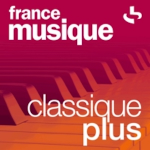Apologies - I have now found the updated stream information - apparently they had server problems. Easy to edit the station when you have the data. Regards Adrian
The stream info that I found doesn't work for me. Could you post a link Adrian?
Edit: The URL that I'm entering for Audiophile Baroque is 8.38.78.173:2199
Last edited:
Apologies - I have now found the updated stream information - apparently they had server problems. Easy to edit the station when you have the data. Regards Adrian
Hi,
Please post the new links and I'll include them in a Moode update.
-Tim
Audiophile links
Hi Jonners, Tim
The links are under the "streams" tab on this website:
The Psychomed - Audiophile | Main
and then go to the "set up external players" tab.
Regards Adrian
Hi Jonners, Tim
The links are under the "streams" tab on this website:
The Psychomed - Audiophile | Main
and then go to the "set up external players" tab.
Regards Adrian
Hi Jonners, Tim
The links are under the "streams" tab on this website:
The Psychomed - Audiophile | Main
and then go to the "set up external players" tab.
Regards Adrian
Thanks Adrian, playing OK now.
John
Hello i need some help. instaled moode 3.1 i´ve been using kali reclocker on pi3 with the i2s hifiberry drive but i´m having very loud pops on play/stop tracks on mpd. Kali is off when i press stop and then turns on on play. If use squezelite it works ok it is always on.
Hi have a digi pro and same thing happens. very loud pops on play/stop.
is it possible to correct this?
tks
Hi have a digi pro and same thing happens. very loud pops on play/stop.
is it possible to correct this?
tks
PuTTy works fine on Windows 10. There is also a free utility which will mount linux partitions off and SD card if -- ahem -- you were to edit /etc/passwd to make your shell usr/bin/bash and forget the leading slash and need to edit it back. Not that anyone we know would be such an idiot ...
Hello i need some help. instaled moode 3.1 i´ve been using kali reclocker on pi3 with the i2s hifiberry drive but i´m having very loud pops on play/stop tracks on mpd. Kali is off when i press stop and then turns on on play. If use squezelite it works ok it is always on.
Hi have a digi pro and same thing happens. very loud pops on play/stop.
is it possible to correct this?
tks
Hi,
What happens w/o the reclocker connected?
What DAC?
-Tim
Last edited:
Hi Jonners, Tim
The links are under the "streams" tab on this website:
The Psychomed - Audiophile | Main
and then go to the "set up external players" tab.
Regards Adrian
Hi Adrian,
Thanks. Updated stream links will be in next Moode update, also three new 192 kbps stations from France Musique compliments of Bernie 🙂
-Tim
Attachments
Last edited:
As a new user, what is the usual timeframe between versions?
Thanks for all the hard work,
Rafa.
Thanks for all the hard work,
Rafa.
Tim seems to bring out an update a month...
His basement must be a cold and lonely place 😀
Either that or 'Tim' is really more than one life form...
His basement must be a cold and lonely place 😀
Either that or 'Tim' is really more than one life form...
An externally hosted image should be here but it was not working when we last tested it.
Hello, i have 2 dacs: ak4495 and cs4397. Both connect to kali or hfb digi pro. Both have the same loud pops on play/stop because the device is on/off on play/stopHi,
What happens w/o the reclocker connected?
What DAC?
-Tim
If i use volume disabled, the pops are not so louder.
Kali works with a lot of drivers like: soekris, ian fifo, i2s generic.
If i use squezelite i have no start/stop pops. Because the device starts and is Always on. On kali the lights are always blue (on).
Hi,
Click on the cover art in the Library panel and a menu will appear. It enables playing whole genre, artist, album or even the entire collection.
-Tim
Something that would make Moode marvellous for classical music is if you could add to genre, artist, and album choice the ability to play all of the grouping -- which is I think the central concept for most classical works, something intermediate between the song and the album. You get albums made up of works, which are in turn made up of movements, which are the individual tracks. So a Grouping, or a classical work, as it might be Beethoven's ninth symphony, or "The Well tempered Clavier" is an organically linked group of tracks, anything from 2 to 40 or more, to be played in a particular order. If you want one, you probably want the lot.
Obviously it's beyond moode to make a specific interface for classical music collections, something that would need rethinking the whole of the library screen. I wouldn't ask for that and I don't know anyone who has the chops even to attempt it. But if I knew where to look I could try modifying the popup from the album cover so that if the genre contained "classical" you had the option to play the whole grouping of which the selected track was part. .
Happy New Year
Something that would make Moode marvellous for classical music is if you could add to genre, artist, and album choice the ability to play all of the grouping -- which is I think the central concept for most classical works, something intermediate between the song and the album. You get albums made up of works, which are in turn made up of movements, which are the individual tracks. So a Grouping, or a classical work, as it might be Beethoven's ninth symphony, or "The Well tempered Clavier" is an organically linked group of tracks, anything from 2 to 40 or more, to be played in a particular order. If you want one, you probably want the lot.
Obviously it's beyond moode to make a specific interface for classical music collections, something that would need rethinking the whole of the library screen. I wouldn't ask for that and I don't know anyone who has the chops even to attempt it. But if I knew where to look I could try modifying the popup from the album cover so that if the genre contained "classical" you had the option to play the whole grouping of which the selected track was part. .
Happy New Year
As you mention, it's smth beyond Moode. Also, I dont get the distinction between Album and Work in your two examples. Please see the metadata of those two in the musicbrainz database:
https://musicbrainz.org/release/32763b06-4aac-485a-81f2-ff3ecc1c978a/details
https://musicbrainz.org/ws/2/releas...ases+artist-credits+discids+labels+recordings
or
https://musicbrainz.org/release/6c436664-888b-4ddc-93d2-595ef8939542
https://musicbrainz.org/ws/2/releas...ases+artist-credits+discids+labels+recordings
Even though there exists a metadata tag for Work, no one uses it, or it is directly referring to Album.
This, or I am missing smth else.
OK. In Musicbrainz, it's listed as "part of", which makes a lot of sense. I used "grouping" because it seemed the nearest thing to a premade tag when I was organising my own collection. The two examples I chose and you looked up happened to be recordings of single works which took up a whole album/CD. But very often this is not the case.
For instance, here is one of a 6CD set from Cafe Zimmerman, containing more or less all of J.S. Bach's chamber music. Each CD contains one of the six Brandenburg concertos (which are more usually released on a disk or two disk set on their own) along with several other unrelated concertos and suites for different instruments.
Each of these concertos or suites or whatever is part of a larger whole identified by musicologists by a work number (in Bach's case, the thing beginning with BWV) as well as by a name like "Concerto for 3 harpsichords in C major, BWV 1064". That larger whole is what I tag as "Grouping" and what Musicbrainz tags as "is part of". And that's the tag or relationship I would like to expose through the Moode interface when I click on the album art for a piece of classical music.
This is because I'm not going to want to listen to one movement of, for instance, a Brandenburg concerto, but to the whole thing. It's also useful and important when I want to compare different performances of the same work, since there's no guarantee that they will come from albums of the same name.
Is that clearer?
For instance, here is one of a 6CD set from Cafe Zimmerman, containing more or less all of J.S. Bach's chamber music. Each CD contains one of the six Brandenburg concertos (which are more usually released on a disk or two disk set on their own) along with several other unrelated concertos and suites for different instruments.
Each of these concertos or suites or whatever is part of a larger whole identified by musicologists by a work number (in Bach's case, the thing beginning with BWV) as well as by a name like "Concerto for 3 harpsichords in C major, BWV 1064". That larger whole is what I tag as "Grouping" and what Musicbrainz tags as "is part of". And that's the tag or relationship I would like to expose through the Moode interface when I click on the album art for a piece of classical music.
This is because I'm not going to want to listen to one movement of, for instance, a Brandenburg concerto, but to the whole thing. It's also useful and important when I want to compare different performances of the same work, since there's no guarantee that they will come from albums of the same name.
Is that clearer?
much clearer now, yes. not sure if/how to tackle this though, since what you are looking for is a category which resides beyond albums, sometimes part of an album, sometimes combining more than one album.
I agree that the whole difficulty is that this classification is orthogonal to the artist/album/song classification that works with contemporary music. That's what makes it difficult.
But what I thought was that there must be some logic in the program which says
When there is a click on the album art
Show a menu
When a menu item is clicked [artist, genre, album]
select all songs from db where [album] is like [selected track's album]
// and the same for artist and genre
And what I wanted to do was simply to add [grouping] or the equivalent tag to the menu selection [artist,genre,album] and then to the subsequent db query.
This seemed to be the least disruptive way to get access to that information.
But what I thought was that there must be some logic in the program which says
When there is a click on the album art
Show a menu
When a menu item is clicked [artist, genre, album]
select all songs from db where [album] is like [selected track's album]
// and the same for artist and genre
And what I wanted to do was simply to add [grouping] or the equivalent tag to the menu selection [artist,genre,album] and then to the subsequent db query.
This seemed to be the least disruptive way to get access to that information.
i think this should be tackled by the MDP, not the client:
https://www.musicpd.org/doc/user/tags.html
I would suggest you open an issue / feature request there
https://www.musicpd.org/doc/user/tags.html
I would suggest you open an issue / feature request there
I agree it would be helpful if mpd were to take this, and I'll suggest it. But even if they do we would need a way to access the info from moode.
Something that would make Moode marvellous for classical music is if you could add to genre, artist, and album choice the ability to play all of the grouping ....
Obviously it's beyond moode to make a specific interface for classical music collections, something that would need rethinking the whole of the library screen. I wouldn't ask for that and I don't know anyone who has the chops even to attempt it. But if I knew where to look I could try modifying the popup from the album cover so that if the genre contained "classical" you had the option to play the whole grouping of which the selected track was part.
Happy New Year
Andrew,
I had made a similar remark some time ago regarding random play, which works at the track level and which I don't find useful with classical works or, for that matter, with creative works by jazz, rock, and singer artists which have been broken up into tracks.
Several hard truths I learned in the last century when I was actively working with the academic community which birthed "information engineering" as a discipline were that it's hard to design a complex (as opposed simply to a large) database which remains useful over time, it's hard to get people to populate the database properly, and it's hard to get people to interface their applications to the database properly.
The first of these truths is evidenced today by the continued online discussions/rants about meta-tag taxonomies and their usage (try searching on "tagging classical music"!). The second is evidenced by the numerous inconsistencies one turns up in the online databases (musicbranz, for example, is as frustrating to me as it is useful). The third is evidenced by the discussion we're having here; imagine repeating this exercise with each of the popular music clients out there (not all of which are based on mpd).
Skipping past all the information-engineering theory and practice regarding concepts of classification and whole-part/composition, it's interesting to contemplate how I would want the user interface to function and then work backward to the data needed to drive it. I'm not sure my vision is the same as yours but clearly we're on the same track😀
Larry Wall, the inventor of the programming language PERL, said that laziness is a virtue in a computer programmer, in the sense of laziness being the quality that makes you go to great effort to reduce overall energy expenditure. Maybe we can come up with a way to get what we want in our Moode Player while reducing Tim's overall energy expenditure.
At the moment, though, I'm preoccupied with an exploration of speech recognition and control. I learn a subject best if I have a practical problem to solve, so I'm aiming at shouting at Moode ala the offerings from Amazon, Google, and Apple, either with or without interacting with their online services. There's so many technologies to play with, so little time. Fortunately, this ground is well plowed. I'm just a curmudgeon who wants to do it my way.
And to all you loyal Moode users, Happy New Year (thanks to Julius Caesar) from Maryland USA.
Regards,
Kent
- Home
- Source & Line
- PC Based
- Moode Audio Player for Raspberry Pi


